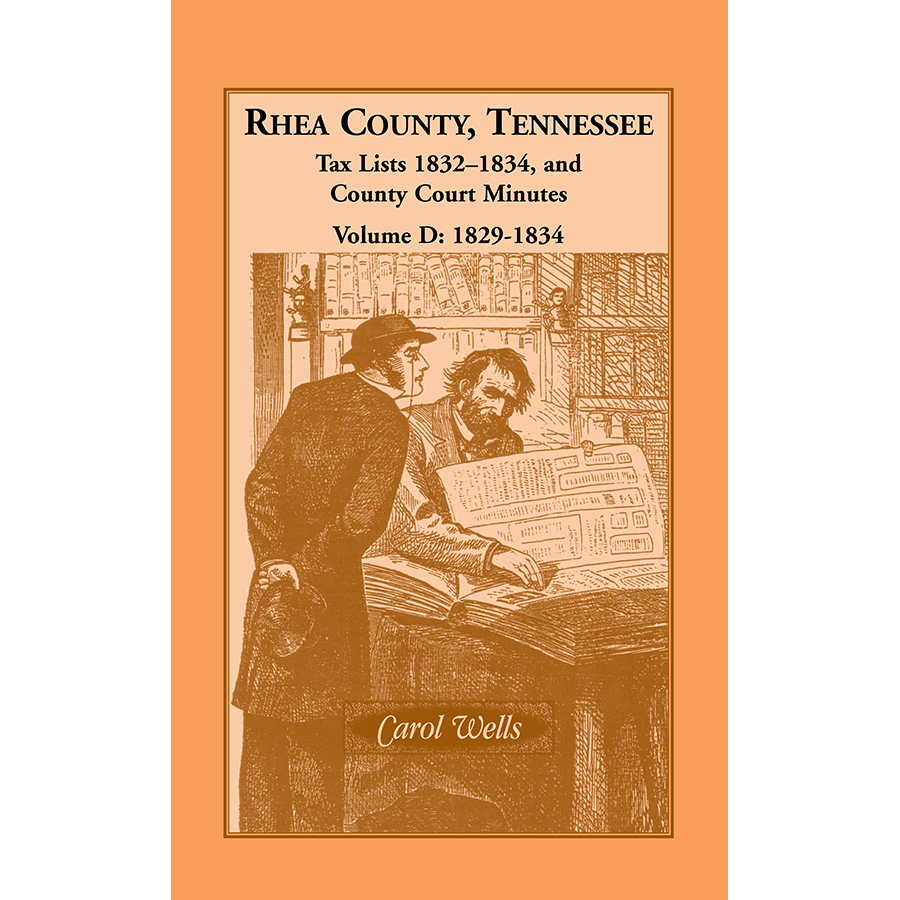Rhea County, Tennessee Tax Lists, 1832-1834 and County Court Minutes, Volume D, 1829-1834
Couldn't load pickup availability
Records of this type help genealogists place their ancestors in the context of historical events as well as the social environment in which they lived. Other kinds of research books (county histories, wills, etc.) contain only a few of the names that appear in county court minutes. Names of persons who can be found in no other records, persons of no wealth of land, persons never mentioned in a will, persons never sued, might readily be found in county court minutes, because the county justices kept order in most aspects of everyday life. County courts of pleas and quarter sessions were held in the early years in this country. Court duties were so varied that most persons were mentioned from time to time as they went about their ordinary lives. These courts oversaw care of indigents, orphans, insane, illegitimate babies, apprentices and other persons needing public assistance, and they regulated care and discipline of slaves. They licensed certain occupations such as tavern keepers, ferry operators, water mill operators and inspectors of various sorts, and they appointed overseers of public roads. They paid bounties for wolves and other predators killed. The court appointed juries to lay out or change the placement of roads, and made sure roads and bridges were kept in good condition. They passed taxes to aid the poor, keep up public buildings, meet state requirements and operate courts. Courts granted emancipation when conditions were in conformity with state law. Deeds, depositions, wills and other documents were proven and recorded. Administrators were appointed for estates of intestates and wills in which no executor was named. Names of jurymen and witnesses are listed. Public order was kept by bringing to trial those accused of Sabbath breaking, gambling, profane swearing, horse thievery and other such offenses. Suits were brought forth, and local disputes were settled. This book contains an everyname index. Watercourses are also indexed.
Carol Wells is a retired archivist and author of several Heritage books about Tennessee. She has also published articles in local historical quarterlies on early French building techniques and Civil War lighthouses and blockade runners. She is the former editor of Southern Studies, a Journal of the South.
Carol Wells
(1996), 2010, 5.5" x 8.5", paper, index, 176 pp.
ISBN: 9780788405549
101-W0554

